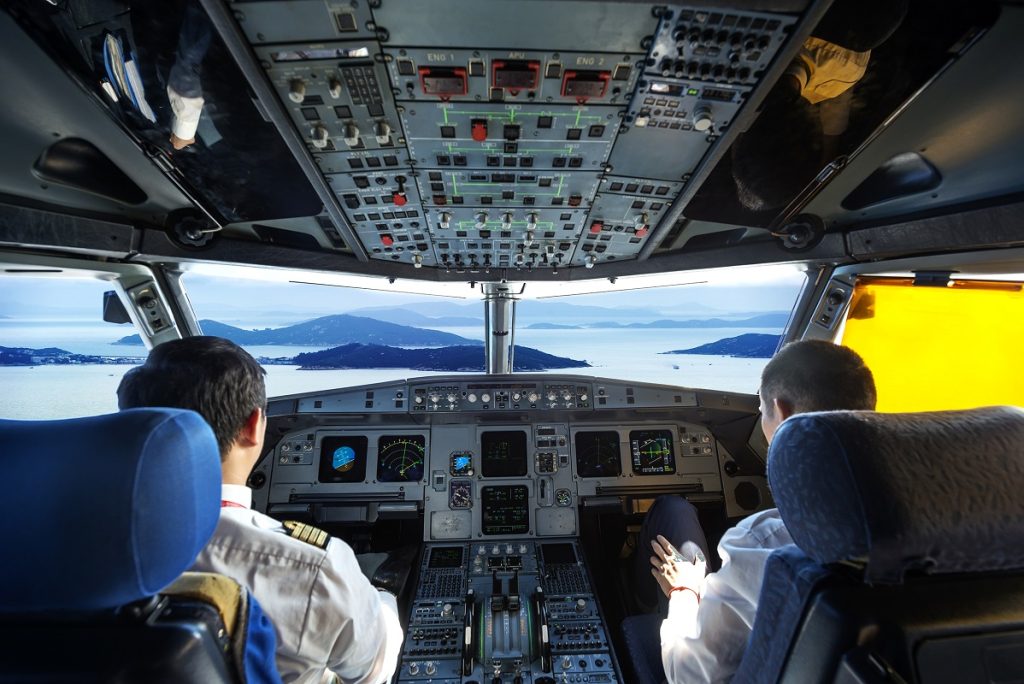- Assess your skills and set career goals to advance in the aviation industry.
- Identify improvement and skill development areas by conducting a gap analysis of competencies needed for career advancement.
- Network with industry professionals and attend professional organizations and events to explore career-building opportunities.
- Obtain specialized training such as multi-engine, instrument rating, and commercial pilot licenses to increase employability.
- Become a flight instructor to gain advanced aviation knowledge, leadership skills, and communication expertise.
The aviation industry is one of the fastest-growing industries worldwide, with the number of passengers and flights increasing yearly. This industry offers a variety of exciting and challenging career opportunities, ranging from pilots and flight attendants to aircraft mechanics and air traffic controllers.
Career advancement in the aviation industry is crucial for professionals who want to stay competitive and keep up with the latest trends, technology, and customer preferences. Advancing your career in the aviation industry offers a range of benefits, including higher salaries, job security, and better work-life balance.
Furthermore, career advancement enables aviation professionals to expand their knowledge, skills, and experience, which can lead to a more fulfilling and rewarding career.
This blog post will explore some strategies for advancing your career in the aviation industry.
Assessing Your Skills and Setting Goals
Before advancing your career in the aviation industry, it’s crucial to assess your skills, qualifications, and experience. Self-assessment of skills is essential in identifying strengths you can leverage and areas needing improvement.
Identifying Areas for Improvement and Skill Development
Identifying growth opportunities and career gaps is critical to improving your career in the aviation industry. A skills gap analysis can help determine the required competencies and skills you must master to advance.
It could be taking courses online or offline to improve technical skills or attending external aviation training to widen your industry knowledge base.
Setting Clear Career Goals and Objectives
Setting clear career goals and objectives helps create a roadmap for your career progression. Whether your goals are to become a pilot, a mechanic, or an air traffic controller, writing down your objectives and breaking them into small objectives makes it more achievable.
Defining achievable objectives helps aviation professionals focus on attaining goals instead of overthinking the results.
Networking and Building Connections
Networking is essential for everyone, irrespective of the industry you work. However, networking in the aviation industry is crucial to advancing your career.
Networking in the aviation industry helps to develop a comprehensive professional network that comprises seasoned industry players, airline companies, HR managers, suppliers, and other players in the industry. These connections can provide industry information that helps you stay competitive and updated.
Networking enlarges your reach, satisfies the curiosity of like-minded people, and fosters learning from diverse perspectives.
Joining Professional Organizations and Industry Events
The aviation industry has had a plethora of professional organizations and industry events over the year. These events and organizations allow aviation professionals to learn new things, meet new people, and develop professional skills. Participating in such circumstances could lead to career-building opportunities.
These offers help maximize your network opportunities, build industry knowledge, and find resources to advance your career.
Developing and Maintaining Professional Relationships
Building rapport with people in the aviation industry is essential. It’s only possible to establish meaningful connections by continually maintaining them.
Communicating with your professional network promptly, asking for feedback on your work, staying active with industry news, and following up on leads promptly all help keep and maintain a professional relationship.
Specialized Training You Do to Advance Your Career

To advance your aviation career, you should specialize in a particular area of aviation, such as commercial flying, helicopter operations, corporate aviation, or military flying.
There are various specialized training programs that you can undertake to enhance your skills and knowledge in these areas, and by specializing in a specific area of aviation, you can distinguish yourself from other pilots and improve your employability.
Multi-Engine Training
Multi-engine training is essential for pilots who want to progress in their aviation careers. Multi-engine aircraft are more complex and require advanced skills and knowledge to operate safely.
Moreover, multi-engine training prepares pilots for flying twin-engine aircraft, enabling them to handle emergencies and maneuver aircraft more efficiently. This training may also improve employability as many aviation companies require their pilots to have multi-engine certification.
Instrument Rating Training
Instrument rating training teaches pilots to fly using only the aircraft’s instruments without visual reference to the outside world.
In addition, instrument rating training is essential to your aviation career advancement as it qualifies you to fly in inclement weather conditions and low visibility. Airlines and other aviation companies increasingly demand instrument rating certification from their pilots.
Commercial Pilot License (CPL) Training
Commercial Pilot License (CPL) training is a prerequisite for most aviation job opportunities, as it is a significant milestone in a pilot’s career. CPL training involves advanced flight training to build on your private pilot’s license (PPL) training.
The training program provides you with the skills and knowledge required to operate commercially and the technical expertise to handle various aircraft in multiple flight conditions.
Flight Instructor Training

Flight instructor training marks the pinnacle of aviation specializations as it enables you to impart your knowledge and skills to aspiring pilots. It involves an in-depth understanding of aviation theory and practical training in flying, navigation, and aircraft systems.
Additionally, flight instructor training enhances your aviation knowledge and hones your leadership and communication skills, laying the groundwork for future career opportunities.
Advancing your aviation career is a journey that requires effort, dedication, and a proactive approach. Whether you’re just starting your aviation career or a seasoned aviation professional, taking steps to advance your job helps you stay competitive and improve your work-life balance.
Regularly assessing your skills, identifying areas for improvement, setting clear goals, networking, and joining professional organizations all help to establish connections, build industry knowledge, and advance your career.

